Macro-Finance Salon (No. 224): “Current Problems and Solutions of the Capital Market”—Joint Analyses by Expert Zhao Xijun, Wang Changyun, Yang Tao, Tan Xiaofen and Guo Biao
2024-04-18 IMI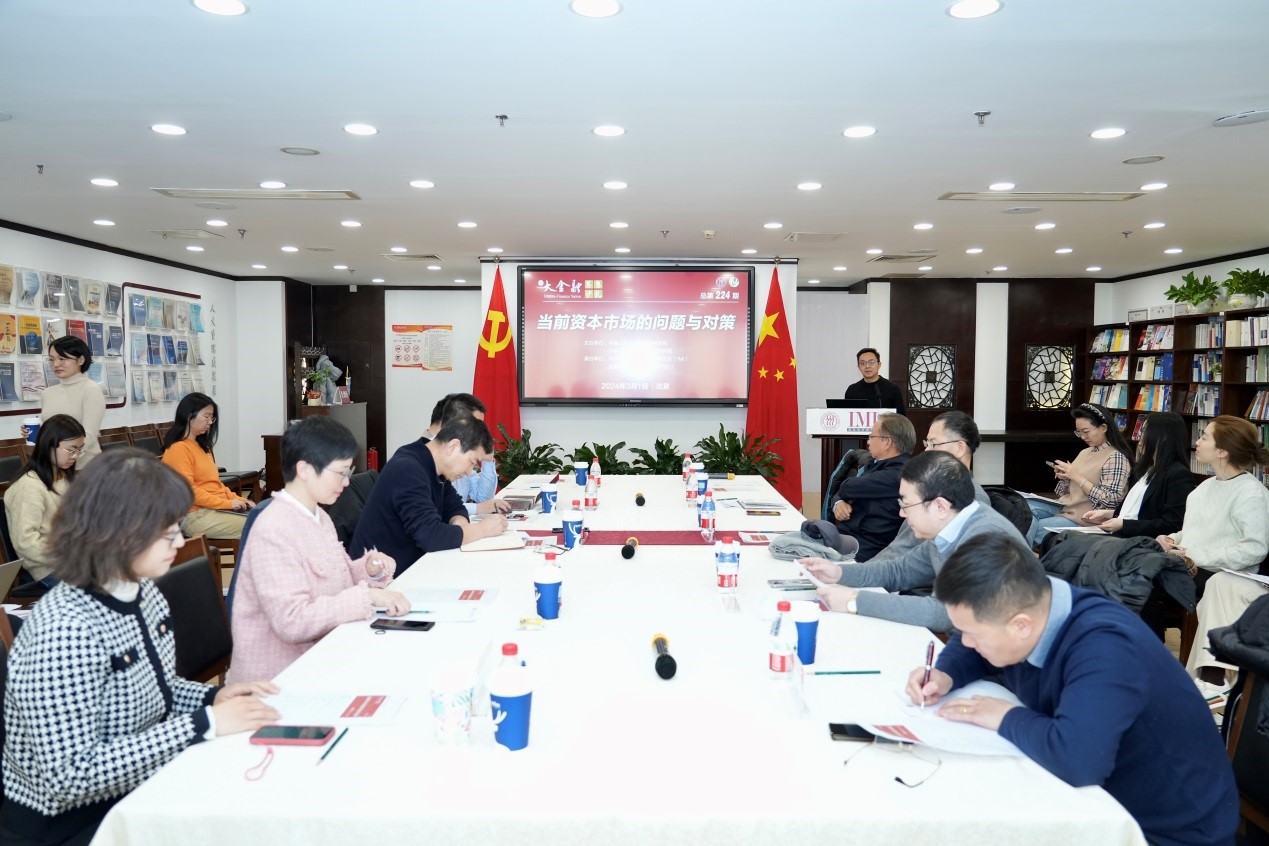
On March 1, 2024, Macro-Finance Salon (No. 224)) was successfully held in Beijing, with the theme of “Current Problems and Solutions of the Capital market”. The meeting was hosted by the School of Finance and the National Academy of Financial Research of Renmin University of China, and organized by the International Monetary Institute (IMI) and the Fintech 50 Forum (CFT50).
Guo Biao, assistant dean of the National Academy of Financial Research of Renmin University of China and professor of the School of Finance, presided over the meeting. More than ten experts and scholars from financial management departments, research institutes and financial industry attended the meeting and delivered speeches.
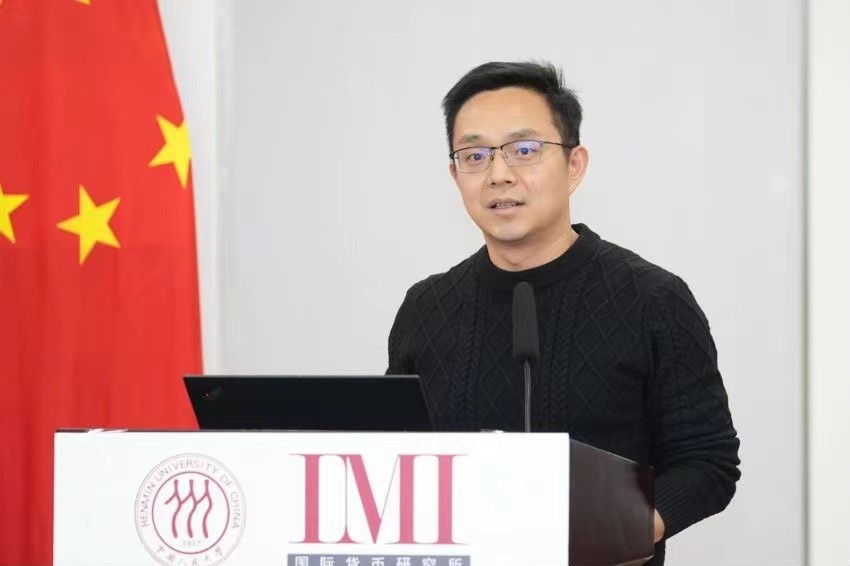
Zhao Xijun, co-dean of the China Capital Market Research Institute of Renmin University of China, first gave a keynote speech. He pointed out the two inconsistencies that could possibly exist in the capital market, namely, “the inconsistency between the stock market and the performance of the economic fundamentals” and “the inconsistency between China’s stock market and the global stock market”. By systematically reviewing the trend of the index and comparing the fluctuations of the major international stock markets, he analyzed the development trend and performance of the capital market from the horizontal and vertical dimensions, which served as a breakthrough point to observe the changes of the capital market.
Based on what mentioned above, it can be seen that the performance of the capital market is affected by multiple factors at various levels:
Changes in the external environment have a profound impact on the market. Second, there is a gap between economic fundamentals and market performance. Third, decentralized policy implementation may lead to a lack of synergies. Fourth, the capital market is going through a stage from chaos to governance, and the positioning of the function of market has changed. Finally, building first-class investment institutions and strengthening market governance capacity are currently the key to development, and the market needs competitive listed companies and investment institutions. At the same time, President Zhao also analyzed the ways and effects of the release of risk factors in the capital market, and combining the higher requirements put forward by the Central Financial Work Conference on the capital market, he believed that the development of the market needs the joint efforts of the government and the market to achieve the high-quality development from chaos to governance.
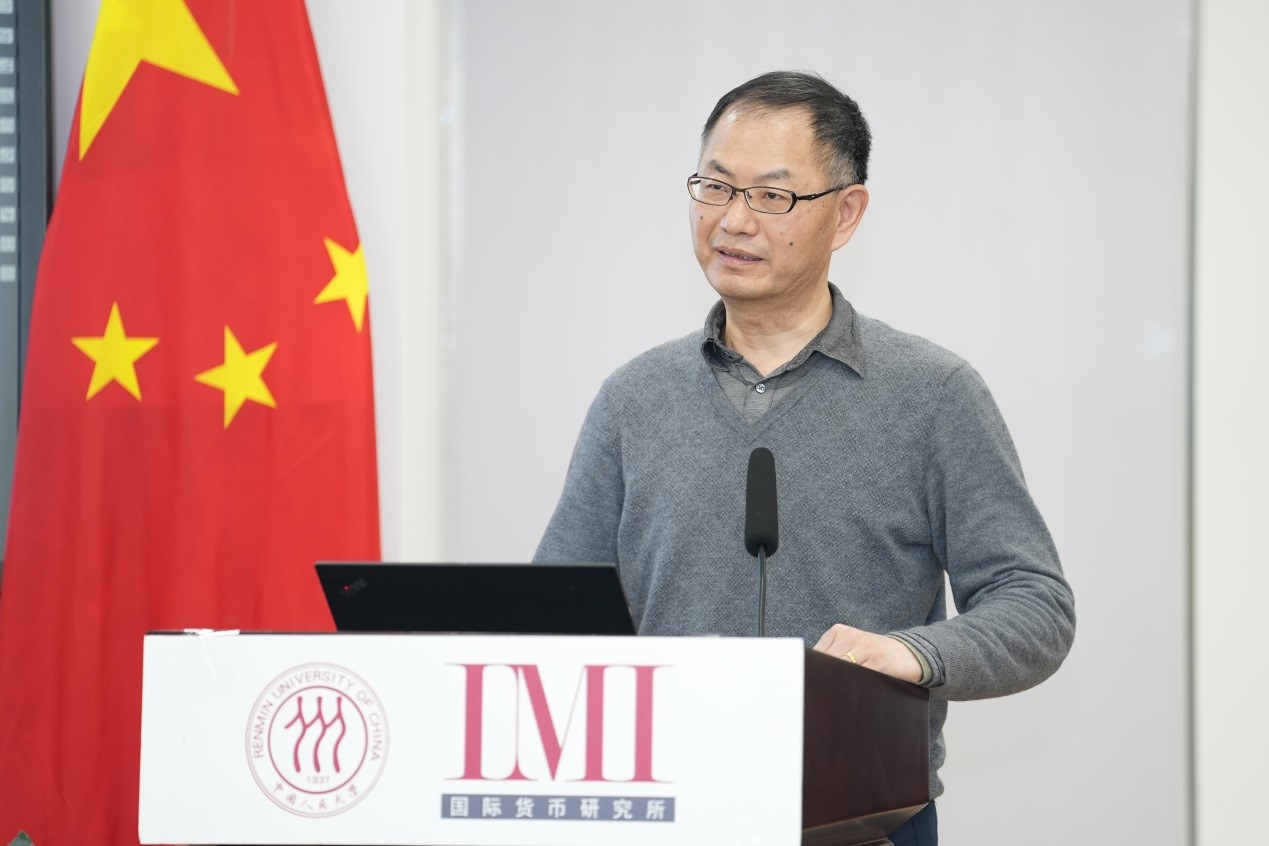
(Zhao Xijun)
Then, Wang Changyun, professor of the School of Finance of Renmin University of China, Yang Tao, deputy director of National Institution for Finance and Development (NIFD), and Tan Xiaofen, professor of the School of Economics and Management of Beihang University and other guests made discussions on the theme of the salon.
Wang Changyun commented on the relationship between the stock market and the economy, the current situation of the capital market and solutions. He pointed out that the relationship between the stock market and the economy is complex and multi-dimensional, and the overall research conclusion is that there is a positive correlation, but this relationship may not be significant in the short term. Although the history of China’s capital market is not long, it has developed rapidly, achieving what Western market achieved for hundreds of years’ effort. Despite the remarkable achievements, the market still faces multiple challenges such as the rule of law, legislation, securities supervision, and the quality of listed companies, which are crucial to the stability and development of the capital market and their solutions. He stressed that the healthy development of the capital market requires us to pay attention to investor returns, the sustainability of the market, and investor confidence. In addition, the continuous development of listed companies and sound corporate governance are also crucial, and corporate governance should go beyond passive compliance and pursue initiative and spontaneity. To sum up, the relationship between the stock market and the economy is complex, and the development of the capital market needs to focus on long-term sustainability and the ability to provide returns for investors. We should achieve healthy development through macro-policy adjustment, regulatory optimization, improving the quality of listed companies and promoting proactive corporate governance, so as to provide impetus for economic growth.
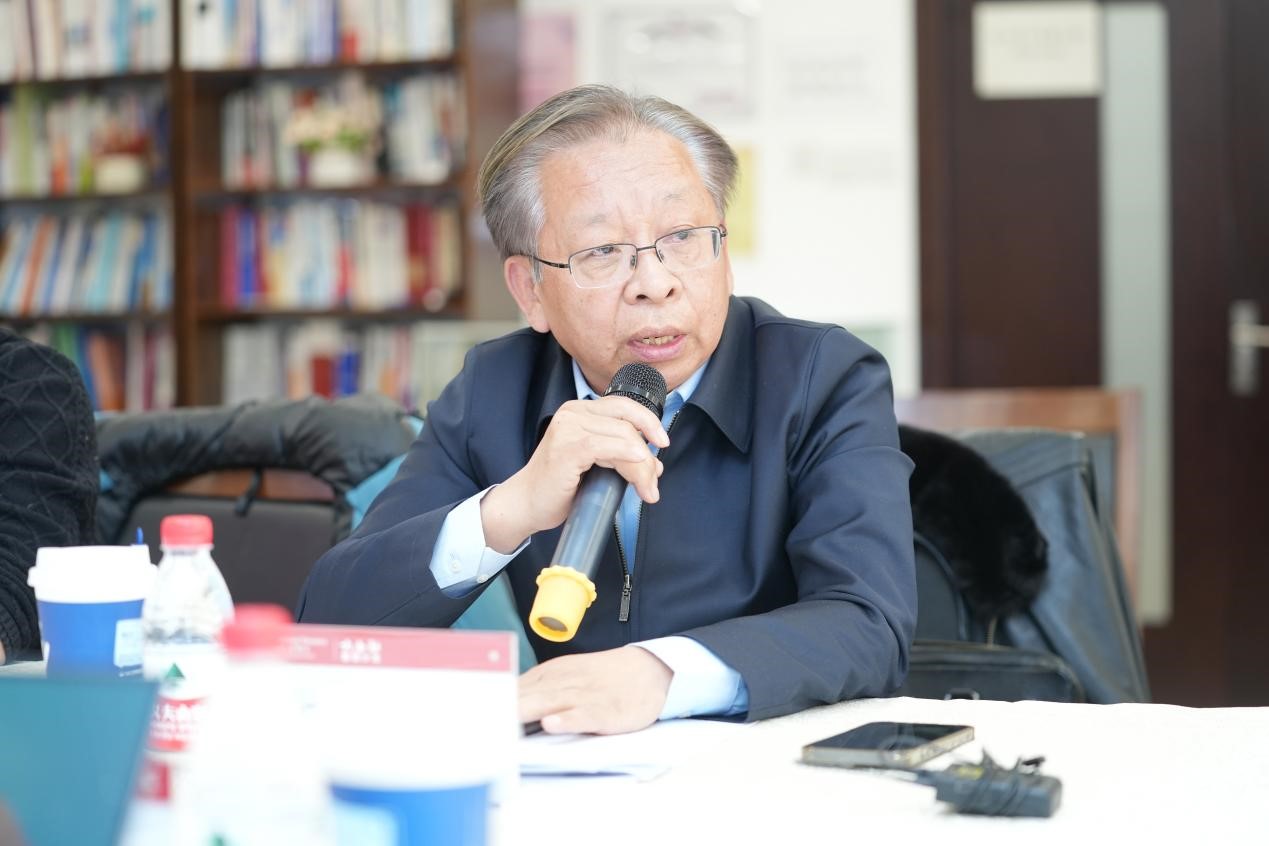
(Wang Changyun)
Yang Tao put forward five core views on the capital market in the discussion. First, the central position of institutional rules in the capital market, the effectiveness of the system, and public choice are crucial to the stability and development of the market. We should not only consider the enforceability and sustainability of institutional rules, but also ensure transparency and public participation. Second, in-depth study of market microstructure, individual behavior and trading patterns is critical. Only by deeply understanding the micro mechanism of the market can we better identify and solve the problems existing in the market. Third, the openness of the stock market deserves attention. Further opening up the stock market can not only attract foreign investment and share risks together, but also promote the internationalization of the market and the consistency of rules and standards. Fourth, new technologies, including quantitative trading and programmatic trading, have and will continue to profoundly change trading methods and market structure. The application and management of these new technologies need to be highly valued in order to avoid potential market risks. Fifth, the improvement of trading and settlement systems is very important. The efficiency and security of these systems directly affect the stability of the market and the liquidity of funds.
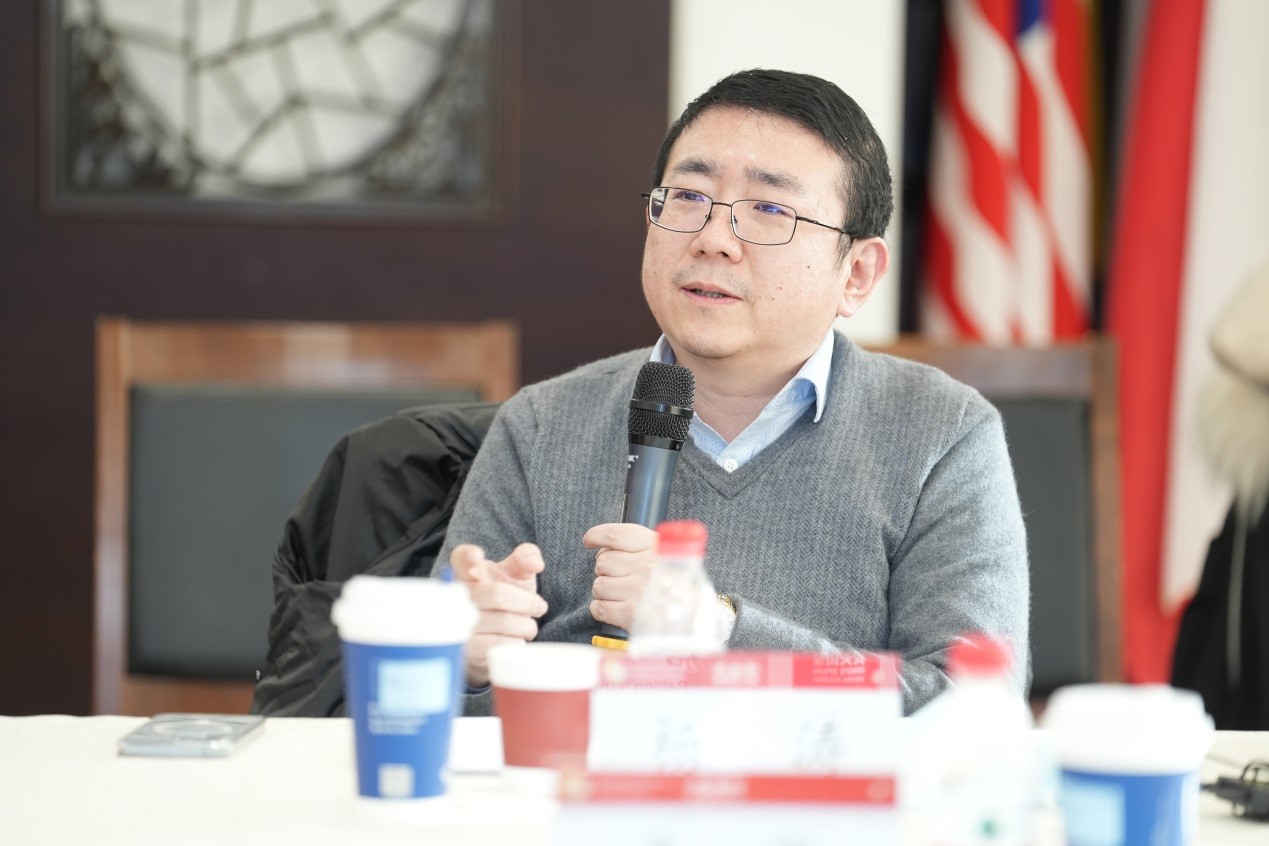 (Yang Tao)
(Yang Tao)
Tan Xiaofen shared the academic community’s views on “whether the stock market is a barometer of economy” and identified the theoretical logic of the double disconnect between China’s stock market and the operation of its own economy and the performance of other countries’ stock markets. Tan Xiaofen pointed out that the reason why the stock price of China’s A-share market deviates from the economic fundamentals is that the stock market, especially large-cap stocks, cannot fully represent China’s economic growth, and the stock price index does not reflect the growth of listed companies with more outstanding performance (matching industry and scale). Compared with small cap stocks and unlisted companies, the investment rate of large cap stocks is higher, but the net cash flow and stock returns are worse, indicating that the investment efficiency of large cap stocks is lower. There are a few reasons behind the poor performance of large-cap stocks. First, there are defects in the stock market listing and delisting system. Second, the internal governance mechanism of enterprises needs to be improved. Third, the proportion of institutional investors in the investor structure needs to be increased while the proportion of retail investors is high, resulting in a higher impact of investor sentiment on stock prices than fundamentals. For the disconnection between the A-share market and the Indian and Japanese stock markets, Tan Xiaofen believes that in addition to the macroeconomic and domestic political environment, the spillover effect of the Sino-US competition and decoupling is also one of the important influencing factors.
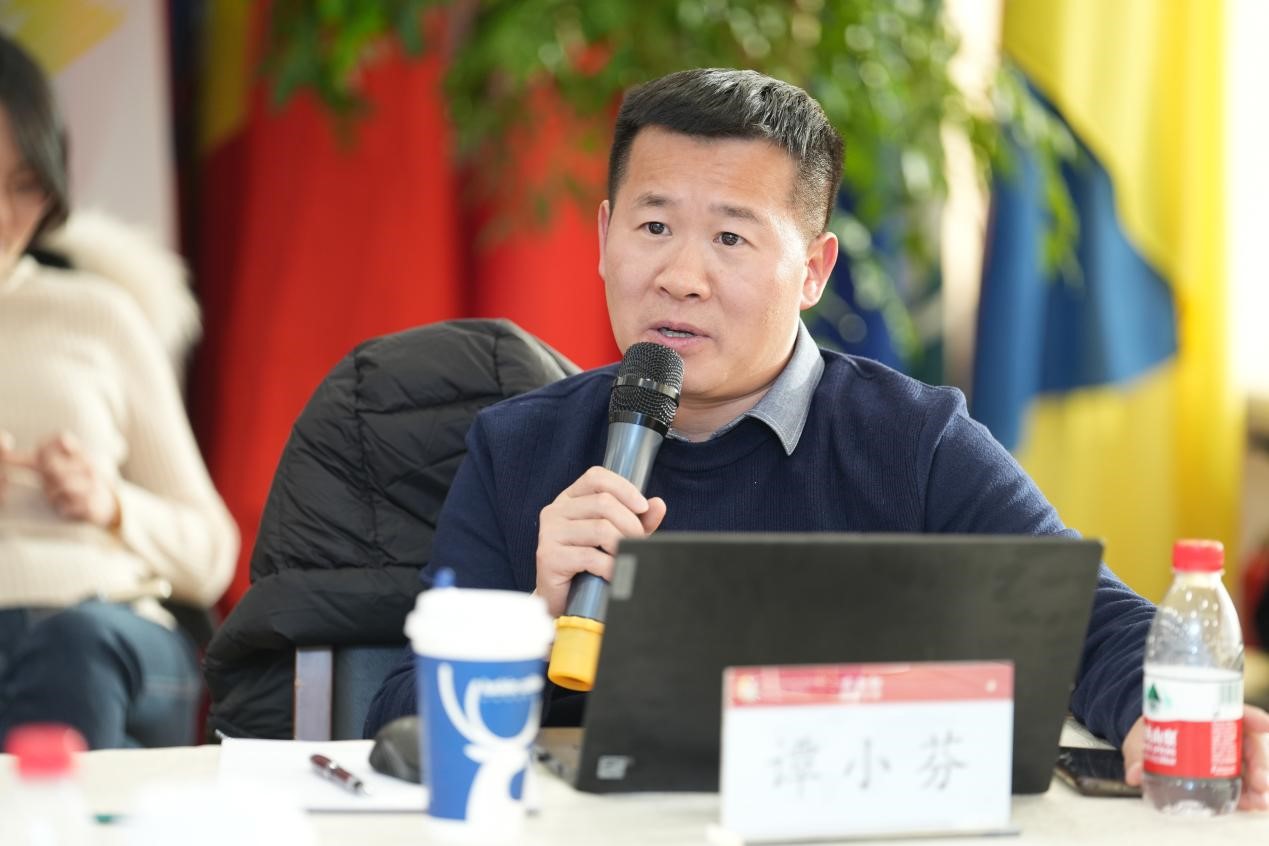
(Tan Xiaofen)
Macro-Finance Salon is a high-level academic salon initiated by the International Monetary Institute (IMI) of Renmin University of China (RUC). Rooted in Chinese practice and keeping up with the international frontier, the salon aims to promote the construction of “Macro-Finance” discipline in the new era by conducting in-depth research on “Macro-Finance” theories, policies and strategies, providing a high-level, specialized and open academic exchange platform. Professor Huang Da is the initiator and designer of the “Macro-Finance” ideological system in China. At the turn of the century, he addressed new challenges and demands posed by economic and financial globalization for the construction of the Chinese financial discipline. He reconstructed a financial discipline framework based on China’s situation, and initiated and systematically designed the “Macro-Finance” discipline system. Generations of scholars have inherited and carried forward this framework, advocating the combination of finance with real economy and the integration of macro-finance and micro-finance. This significant theoretical innovation system with distinct “Renmin University of China school” characteristic is gradually taking shape.
